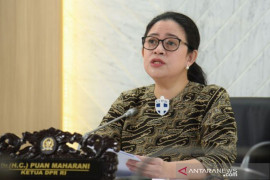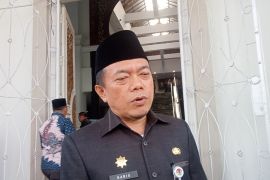The Bill on BPJS could not be completed because the supra-structure in the parliamentarian institution was weak to support the performance of legislators, according to Marzuki.Jakarta (ANTARA News) - The Indonesian House of Representatives (DPR RI) Speaker has apologized for failure to pass a Bill on Social Security Executing Agency (RUU BPJS) in the fourth parliament sitting 2010-2011 which just concluded on Friday.
"We have worked hard to finish it, but the fact is it was not over. If it`s called apology, yes we apologize because we failed to finish it on time," DPR Speaker Marzuki Alie said at Parliament Building here on Friday.
The Bill on BPJS could not be completed because the supra-structure in the parliamentarian institution was weak to support the performance of legislators, according to Marzuki, a politician from the Democrat Party.
Marzuki said he had repeatedly conveyed the strategic plans of DPR in order to strengthen the work supporting system, so that lawmakers could deliver their tasks well.
"That`s all that we are going to do and implement. Hopefully in the next two years, it will be better," he said.
The DPR was committed to producing quality laws which could be well implemented, he said.
The parliament and the government remained committed to passing the Bill on BPJS into law, but because they failed to reach an agreement until the end of the fourth parliamentarian sitting, DPR decided to postpone the deliberation until the next sitting.
"The DPR RI and the government have the same commitment to preparing BPJS," he added.
On the occasion, Marzuki Alie also received representatives of protesters demanding the Parliament to pass the Bill on BPJS into law.
The deliberations of the bill have been carried out over the past four parliamentarian sittings but it has not reached any agreement yet.
One of the problems where the DPR and the government failed to agree is on the transformation of four state enterprises (BUMN), namely PT Taspen (for civil servants), PT Jamsostek (for workers), PT Askes (health insurance for civil servants), and PT Asabri (for military personnel), into one institution, namely BPJS.(*)
Editor: Heru Purwanto
Copyright © ANTARA 2011











